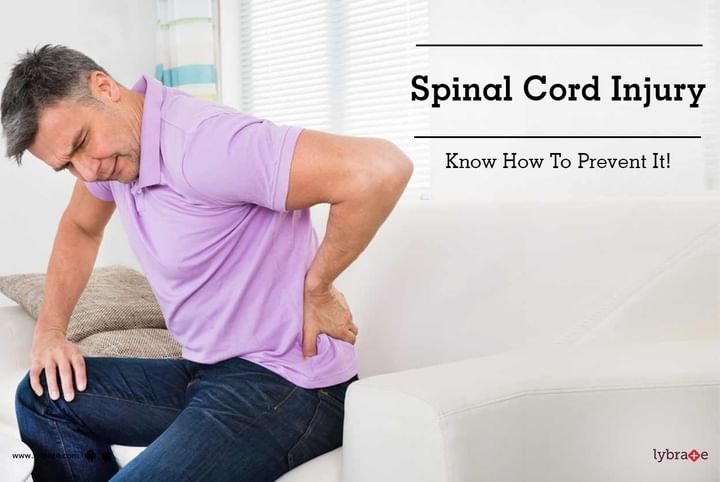Spinal Cord Injury: Know How To Prevent It!
The spinal cord is like a cable consisting of millions of nerves that transmit messages in the form of electrochemical signals from the brain to the rest of the body, and also sensations from the body back to the brain. We are able to perceive pain and move our limbs because of messages sent through the spinal cord.
The spinal cord is soft and vulnerable to injury. It is protected by the bony structure of the vertebral column. A spinal cord injury can happen if there is a fracture of the spine. Sometimes, even if the vertebral column is intact, violent shaking can cause cord contusions. It’s an extremely serious type of injury that is likely to have a lasting and significant impact on most aspects of daily life.
If the spinal cord sustains an injury, some or all of these impulses may get blocked. The result is a loss of sensation and mobility below the level of injury. A spinal cord injury closer to the neck will typically cause paralysis throughout the body, while one in the lower back may affect the legs but spare the hands.
Causes:
A spinal cord injury is often the result of violent trauma. Events like spontaneous hemorrhage, infection, tumors or autoimmune diseases can also cause spinal cord damage. Some causes of traumatic injury to the spinal cord are :
- trauma during a car accident (specifically, trauma to the face, head and neck region, back, or chest area)
- falling from a significant height
- head or spinal injuries during sporting events
- electrical accidents
- a violent attack such as a stabbing or a gunshot
- Diving head first into water that’s too shallow and hitting the bottom
Symptoms-
Some symptoms of a spinal cord injury include:
- Neck or back pain
- Pain radiating along limbs, or numbness/ pins and needles sensation along the arms or legs.
- Weakness of particular muscle groups in focal injury, to complete paralysis in severe injury.
- Clumsiness during finer actions using the hands.
- Unsteadiness or loss of balance while walking.
- Loss of control of the bladder or bowels You must take immediate precautions
If there is the slightest suspicion that someone has a back or neck injury:
- Call 911 or your local emergency medical assistance number
- Do not move the injured person – permanent paralysis and other serious complications may result.
- Place heavy towels on both sides of the neck or hold the head and neck to prevent them from moving until emergency care arrives • Provide basic first aid, such as stopping any bleeding and making the person comfortable, without moving the head or neck
- If movement is absolutely necessary, arrange a cervical collar, then log-roll onto a stiff spine board or flat surface, taking care that all parts of the body move together and that any relative movement between one part of the spine to the next is avoided.
Prevention-
Because spinal cord injuries are often due to unpredictable events, the best you can do is reduce your risk. Some risk-reducing measures include:
- always wearing a seatbelt while in a car
- wearing proper protective gear while playing sports
- never diving into water unless you’ve examined it first to make sure it’s deep enough and free of rocks
- increase protective measures to avoid falls from height
Treatment:
Seek the opinion of a Neurosurgeon or an Orthopedic spine surgeon as soon as possible. X-rays, CT scan or MRI scans may be advised for assessing bony or soft tissue injuries of spine. Minor injuries require only immobilization and rest. Severe injuries, however, may require steroid injections and surgical intervention. Time is of essence, and an early surgery in certain situations may save a limb that would otherwise be paralyzed for life.



+1.svg)
